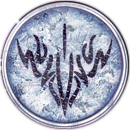|
Craptacular! posted:You're missing my point. I saw the same map on Wikipedia. But why do states like Michigan, New York, Massachusetts, Delaware, New Hampshire, and Rhode Island not have no excuse vote by mail? Democrats have held a majority of the power in these states for some time. Oh yeah, I should've clarified that I agree with you. I was genuinely stunned when I first saw that map for those exact reasons.
|
|
|
|

|
| # ? Jun 11, 2024 02:54 |
|
Craptacular! posted:Obama's early wins were the result of an incredible ground game of energized volunteers plus the help of labor unions in the early caucus states. Where do you think the ground game coalition came from? Every candidate knows what the plan is and what's exactly going to happen because there's a reason why they're selected to run in primaries to begin with. As the voter, you're given an illusion of choice but it doesn't affect the outcome. Iowa will always be the first caucus state for many years to come. And no, the Iowa Democrats don't hate Hillary Clinton. They've been doing this caucus thing for a long time, and if Hillary won the Iowa caucus, then that would've meant Bernie would win a few later ones so the Democratic party could identify who the progressives were. The Democratic party literally had to schedule the Nevada caucus to be on a Saturday or risk the apple cart being overturned.
|
|
|
|
+1 for Clinton in Kansas, voted for as many Democrats in local races as I could. Not sure what difference it will make, and I was the only person under 60 at the early voting place by my house
|
|
|
|
Man, I remember as a lad that John Edwards was considered a serious candidate in 2008. The GOP desperately needs a hostile takeover or perhaps a complete teardown
|
|
|
|
Carlosologist posted:The GOP desperately needs a hostile takeover or perhaps a complete teardown They are already working on this.
|
|
|
|
Arcanen posted:I wouldn't be surprised if a big reason that Nate's model doesn't give big margins to the predicted winner is to avoid egg on his face when some of his predictions don't come to pass. His livelihood and his brand are tied up in his predictions and the public's perceptions of his accuracy. He'll get credit for a correct win prediction regardless of how strongly that prediction was stated ("I predicted xyz would win (55% chance) and it happened, aren't I awesome?"), but his ability to deflect incorrect predictions is proportional to how much uncertainty there is in his model. In the above case, he can "well abc had a 45% chance under the model". This is much harder to do with a "model predicts 99% chance of xyz victory" if the outcome is wrong.
|
|
|
|
canepazzo posted:https://twitter.com/NateSilver538/status/794994593574113282 I don't really like the way that article is written, since it is way to aggressive, but I sorta agree. The polls are adjusted based on how far the final polls where away from the result. But by that system, polls like Rasmussen which are consistently way below average, but decide to go back to the mean in the last week look way less skewed, than a poll which was consistently +2 from average through the race. Also it assumes that the previous polls where skewed intentionally. Imagine what this means for next time. The worthless LA times poll has a 5% Trump lead right now. I don't think they do that intentionally and have just hit a really awful sample with bad weighting. Assuming they get a reasonable sample next election, it would be close to the average. But Nate's model would have to raise their result by ~8% to accommodate for the LA times republican bias. Unless literally all polls are biased in one direction, I think it might be better, if this adjusting wouldn't happen. Statistically, such a bias evens out. cant cook creole bream fucked around with this message at 21:33 on Nov 5, 2016 |
|
|
|
canepazzo posted:https://twitter.com/NateSilver538/status/794994593574113282 Cause I was refreshing his page more rapidly when I could watch The Slaughtress of Benghazi climb to 75, 80, 85, 88% compared to now where Old Tinyhands is rising.
|
|
|
|
hahaha. https://twitter.com/NivenJ1/status/794811360936923136
|
|
|
|
Cingulate posted:Does anyone have a convincing argument for why it would be in Nate's interest to make the prediction look worse for Clinton, rather than better for her? Click bait. I'm curious what happens to Silver's reputation if come Election Day he's still predicting Trump to take NC and Florida and Trump doesn't win those states.
|
|
|
|
Cingulate posted:Does anyone have a convincing argument for why it would be in Nate's interest to make the prediction look worse for Clinton, rather than better for her? Attention, and on the off chance Trump wins he can say "yeah I was wrong but all those other guys were even more wrong, give me money".
|
|
|
|
Lightning Knight posted:Click bait. People tend to prefer a nice surprise to a nasty shock so being too pessimistic probably wouldn't hurt him too much.
|
|
|
|
Cingulate posted:Does anyone have a convincing argument for why it would be in Nate's interest to make the prediction look worse for Clinton, rather than better for her? I'm not saying he does that. but theoretically it would almost double his pageviews. Republicans aren't going to watch one of several sites, which show an uninteresting loss for their team. Cingulate posted:on Nate's much better designed site cant cook creole bream fucked around with this message at 21:42 on Nov 5, 2016 |
|
|
|
Lightning Knight posted:Click bait.
|
|
|
|
computer parts posted:Attention, and on the off chance Trump wins he can say "yeah I was wrong but all those other guys were even more wrong, give me money". cant cook creole bream posted:I'm not saying he does that. but theoretically it would almost double his pageviews. Republicans aren't going to watch one of several sites, which show an uninteresting loss for their team.
|
|
|
|
On the early voting thing, Republicans don't want easy voting because it makes it harder for them to win. (See also: Their ridiculous voter suppression efforts and voter ID laws.) Since most states are Republican-controlled, they do what keeps them in power, i.e. Put up as many barriers as possible to stop people who don't vote for them from voting. Also, ahahahahahahaha: https://twitter.com/onlxn/status/795000099973672960
|
|
|
|
ReV VAdAUL posted:People tend to prefer a nice surprise to a nasty shock so being too pessimistic probably wouldn't hurt him too much. Maybe, but his reputation is built on consistency and accuracy, not telling people what they want to hear. Cingulate posted:There's a lot of people who'd eat up "30 reasons why Hillary will reign in 1000 years of liberal darkness" right now. I bet you Nate Silver being so pessimistic on Clinton has funneled a lot of people towards Upshot and PEC who'd be perfectly happy to watch the number "99%" on Nate's much better designed site if he had it there instead of "64%". Liberals don't send as many death threats when you write pro-Republican articles.
|
|
|
Cingulate posted:But think: to make that calculus, he needs a realistic estimate of Trump's win chances. If his secret real model told him Trump has a 0.4% chance, he wouldn't have to gently caress up his entire business to prepare for that eventuality. I also imagine Trump, which he's gon' lose, is going to lose in a different and idiosyncratic way compared to a frictionless, spherical, generic republican.
|
|
|
|
|
Cingulate posted:Here, let me tell you the dirty little secret about statistics: the point estimates are trivially easy. The uncertainties are hard. I'm aware; I'm currently writing my dissertation for my PhD in statistics (well, OR, but there isn't much difference these days). My claim wasn't so much that Nate is wrong for having so much uncertainty, and that Wong is correct for having so little. I haven't done any political science research myself, though it's something I'm generally interested in. It's certainly hard to make broad generalizations about political voting patterns, especially given the relative lack of real data (as well as certainty over whether or not historical trends continue to be valid). I'll be a bit more explicit in my modeling critique of Nate by way of analogy to a joint posterior distribution over all states. I don't know if Nate's model is explicitly Bayesian (he did blame poor performance of his polls plus model on "ideological priors", I'm not sure if that was a literal or metaphorical), but whatever, let's assume it is for sake of my argument (which is more easily expressed in a Bayesian framework, but doesn't require it). So anyway, let's say Nate's model is a big ol joint posterior distribution over states, and he determines election outcome probabilities by looking at the empirical distribution of samples, and let's assume he gets overall election result samples by doing a sum across every element i.e. state in each sample, weighted by EVs of those states. My problem is that the uncertainty expressed by his state models is not consistent with the states being the marginal distributions of each state from the joint posterior. It's certainly possible, but his (hypothetically Bayesian) model would have to have absurdly strong dependence structure between the random variables representing the states if we are to interpret his state uncertainty results as marginals and his overall election prediction as some function of draws from the joint posterior of all states.
|
|
|
|
Bloops Crusts posted:Just got off the phone with my local campaign office. Volunteered to knock on doors on Monday and election day. Thank you for your service. We had 167 volunteers today knock on 1,900 doors. Northern Virginia is the pickaxe that breaks the South.
|
|
|
|
Cingulate posted:Oh I promise you he does not, but ... sorry, what does the bolded part mean? I don't understand it. Sorry, that was a bit unclear. Most statistic polling aggregates, like PEC, are showing that Clinton is ridiculously likely since the access Hollywood tape and haven't really changed a lot since then. If 538 would be in the exact same range as those, Republicans wouldn't look at 538 compared to the others. (Or more likely they would look at some echo chamber like the LA times poll.) In other words, showing a horse race means that republicans are more likely to click his stuff. Especially if he writes articles like "Clinton may look a bit better in the national polls, but state polls are still incredibly tight. Just look at the Nevada tossup." But as I said, I don't think he's doing it intentionally. His model is just a bit weird and he interprets it the most pessimistic way possible.
|
|
|
|
https://twitter.com/RawStory/status/794986090033717248 I hate that voter intimidation is a legitimate concern in tyool 2016 e: the tweet doesn't mention he's the loving election commissioner
|
|
|
|
Craptacular! posted:Obama's early wins were the result of an incredible ground game of energized volunteers plus the help of labor unions in the early caucus states. Nah, there was just a pretty strong Sanders push here. Most of Iowa's Democrats are pretty left-leaning socially, so far as I can tell. All of the people who caucused with me for Sanders are voting Clinton now, if a bit disappointed that the party platform hasn't shifted as far as we'd like.
|
|
|
|
Your Boy Fancy posted:Thank you for your service. Thanks. Any advice? I've never canvassed before.
|
|
|
|
Arcanen posted:I'm aware; I'm currently writing my dissertation for my PhD in statistics (well, OR, but there isn't much difference these days). I do agree with your point - it is a very probable possibility that he is indeed strongly overestimating the inter-state dependence this election. If he is indeed wrong (we will see on Nov 9th), that is probably the first thing to look at and fix in his model. Either way, we're either gonna get a fascinating post-mortem of the PEC model or a fascinating post-mortem of the 538 model. I trust both to be honest about their mistakes. Personally, my guess would be the truth is in the middle - PEC is probably too optimistic (assuming 0 correlations between state-wise polling errors), Nate is too pessimistic, the other models somewhere in the middle.
|
|
|
|
Arcanen posted:I'm aware; I'm currently writing my dissertation for my PhD in statistics (well, OR, but there isn't much difference these days). I'm pretty sure Nate's model does have a very strong dependency structure between the states, in part to overcome the lack of constant polling in all states.
|
|
|
|
cant cook creole bream posted:Sorry, that was a bit unclear. Trabisnikof posted:I'm pretty sure Nate's model does have a very strong dependency structure between the states, in part to overcome the lack of constant polling in all states.
|
|
|
|
Trabisnikof posted:I'm pretty sure Nate's model does have a very strong dependency structure between the states, in part to overcome the lack of constant polling in all states. It does. There's a correlation submatrix floating around somewhere, with basically every value lying above .5. e:fb edit2: Though I have no idea whether he models the uncertainty around the correlations. CottonWolf fucked around with this message at 22:04 on Nov 5, 2016 |
|
|
|
I'm really happy about this 538 dissection. Usually these are full of clueless overconfident people who like to post
|
|
|
|
CottonWolf posted:It does. There's a correlation submatrix floating around somewhere, with basically every value lying above .5. annnnnnd http://fivethirtyeight.com/features/a-users-guide-to-fivethirtyeights-2016-general-election-forecast/
|
|
|
|
That Ohio/Michigan correlation is insane.
|
|
|
Dexo posted:That Ohio/Michigan correlation is insane. THat would explain why Obama and Hillary are campaigning in Michigan on monday, cause Mook said "numbers are tightening there"
|
|
|
|
|
Like I posted in C-SPAM, I would always prefer people have wider error bars than narrower when there's doubt and with something like this there's a lot of doubt. 538's model probably overestimates the uncertainty remaining. PEC I promise you 100% underestimates it- 99% chance of Clinton being elected is a bad joke that completely throws out even the possibility of a systematic error. It's laughable. If you want a good first cut estimate of the odds that is Very Stupid, try this. Clinton's about 3 points ahead of Trump. Most everyone agrees with that, because estimating the mean of a distribution is easy but estimating the error bars aren't. So 3%. Okay. Look, like 538, at the polling errors in the last 12 elections. 3 times there's been an error more than 3%, or there's 1-in-4 odds of the polling error being larger than Clinton's lead. Cut that in half because an error could just as easily be in Clinton's favor as not, and you get as a Very Stupid First Order Estimate a 1-in-8 chance that Trump's going to win the popular vote. Badabing, badaboom, let's go get drinks. I suspect that when Nate's blood pressure comes back down to earth post-election, the biggest thing on his plate is going to be putting early voting data into his models in the last few weeks as a way of both cutting the uncertainty and rooting his forecasts in reality. At least, that's what I'd do from the outside; I actually am fully okay with his assumptions about correlation of errors across states, but I fault him for not using data that is real and at hand to put in his black box.
|
|
|
|
Dexo posted:That Ohio/Michigan correlation is insane.
|
|
|
|
Mukaikubo posted:I suspect that when Nate's blood pressure comes back down to earth post-election, the biggest thing on his plate is going to be putting early voting data into his models in the last few weeks as a way of both cutting the uncertainty and rooting his forecasts in reality. At least, that's what I'd do from the outside; I actually am fully okay with his assumptions about correlation of errors across states, but I fault him for not using data that is real and at hand to put in his black box. But I do assume he'll enter it into his "polls-plus". I also assume PEC will not change much if Clinton wins, unless he misses more than 3 states.
|
|
|
|
Arcanen posted:In contrast, someone like Princeton Professor Sam Wang PhD (who it must be emphasized has significantly, astronomically greater expertise in statistics, probability and modelling than Nate Silver, BA Economics, will ever have) has a lot less riding on the perceptions of his election predictions. He's less well known in the general public, and the election work is unrelated to his larger academic work in neuroscience. I had no idea Wang was in neuroscience. I love him even more now
|
|
|
|
...I guess all that talk of the Devil and Satan has caused Alex to be possessed by the spirit of the Ultimate Warrior.
|
|
|
|
Lightning Knight posted:Maybe, but his reputation is built on consistency and accuracy, not telling people what they want to hear. A lot of the criticism Silver is getting does seem to be because he isn't telling people what they want to hear. He's famous because he's accurately predicted two Democratic presidential wins. Sure he's predicted 2010 and 2014 accurately for the GOP but Dems don't care about off year elections. As has been pointed out, often ITT people's main complaint about the 538 model is that Nate is shook and that he should be showing Clinton with a higher win chance.
|
|
|
|
Cingulate posted:https://mobile.twitter.com/538politics/status/783665565554642944 I only glanced at this, but isn't that first link just correlations between results in the simulations? As in, it takes into account polls, correlation between states, and everything else? The actual modeled correlation between states can't be that high, I don't think, else the model would have Iowa and Ohio very likely to go to Clinton given polling in Wisconsin, Minnesota, and Michigan (I suspect, anyway). Edit: Or since weight for polls vs correlation with other state polls can be set by state probably, could be Ohio and Iowa don't care about other state polls and MI, WI, and MN do more. Would help explain 538's relative pessimism for Clinton across that whole region.
|
|
|
|

|
| # ? Jun 11, 2024 02:54 |
|
Bloops Crusts posted:Minnesota's probably not going for Trump, but it has been underpolled this election, so I can see Trump's angle here: it's a big question mark, and a very alluring prize provided he can turn it red. I'm really curious why you think this. I haven't really looked too far into it myself, but I feel like we're trending left.
|
|
|
































